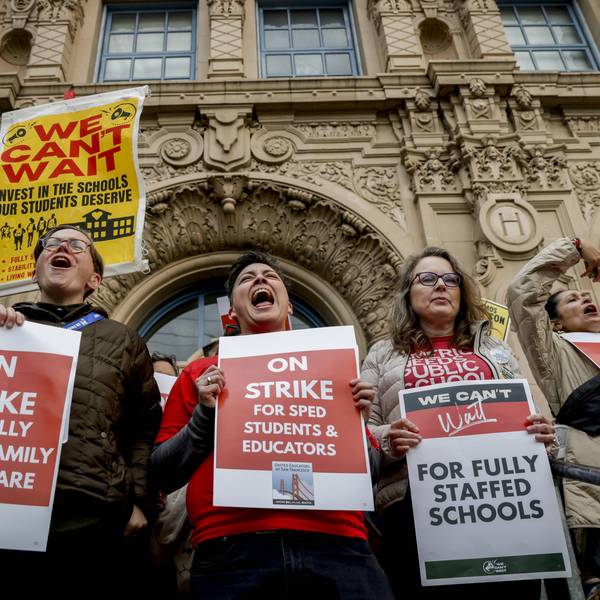Teachers in Oklahoma applauded the state Senate's passage of a $447 million bill to fund educators' first raise in a decade by raising taxes on oil and gas production as well as cigarettes and fuel--but warned that the plan is not enough to keep them from striking.
The proposal was approved in a 36-10 vote on Wednesday night after weeks of speculation that teachers would stage a walkout beginning April 2 to demand salary increases as well as more funding for their overcrowded schools--where teachers are frequently forced to pay for supplies out of their own pockets.
"While this is major progress, this investment alone will not undo a decade of neglect," said Oklahoma Education Association (OEA) President Alicia Priest in a press release. "Lawmakers have left funding on the table that could be used immediately to help Oklahoma students."
The mobilization by teachers in Oklahoma follows a multi-day strike in West Virginia earlier this month during which educators and school employees also occupied the state capitol to demand raises and a permanent funding solution for their health insurance program. The West Virginia strike kept the state's schools closed for nine consecutive school days and continued after lawmakers passed a one-time five percent raise, with teachers insisting that all their demands be met.
"Lawmakers have left funding on the table that could be used immediately to help Oklahoma students." --Alicia Priest, OEALike West Virginia's educators, Oklahoma's largest teacher's union said Thursday that the legislature's offer of a $6,000 raise was not enough to keep them from striking.
"This package doesn't overcome shortfall caused by four-day weeks, overcrowded classrooms that deprive kids of the one-on-one attention they need. It's not enough," Priest said. "We must continue to push for more annual funding for our schools to reduce class size and restore more of the 28 percent of funds they cut from education over the last decade."
"There is still work to do to get this legislature to invest more in our classrooms. That work will continue Monday when educators descend on the Capitol," read the OEA's press release.




